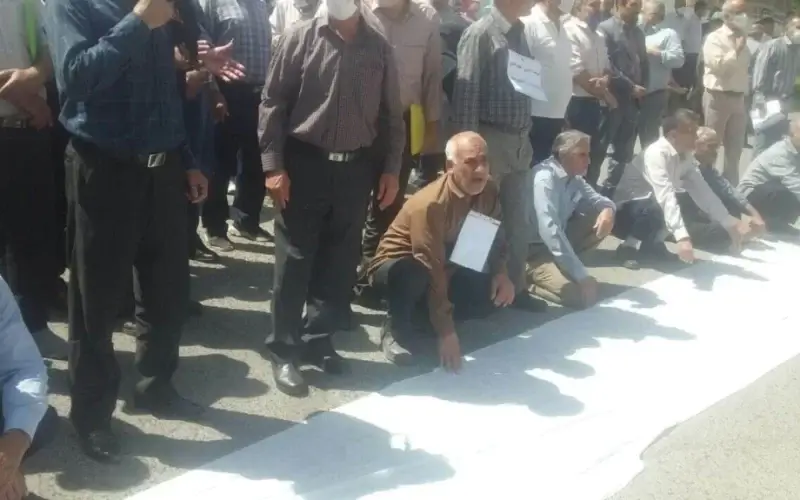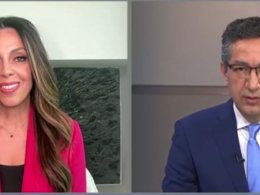In recent months, Iranian citizens ranging from farmers, teachers, pensioners, students, women, and many others have taken to the streets throughout Iran to protest the economic and political conditions under the Islamic Republic. Protesters peacefully took to the streets with signs and banners in the country's capital, Tehran, and other cities including Isfahan, Ahvaz, Shiraz, and others, chanting for the downfall of current hardline President Ebrahim Raisi outside government buildings. Despite the crackdowns and arrests, protesters continue to amass in large numbers, leading to increased fear from Islamic Republic officials.
While President Raisi has stated that he sympathizes with the plight of many Iranians and has vowed to address their growing concerns, the Islamic Republic's Security Forces continue to suppress the protesters using live ammunition and more brutal measures. The regime's Security Forces have deployed to places where protests are most vibrant, like Khuzestan and Isfahan, using large SWAT-like trucks, riot gear, and troops to drive people out of the streets. In a statement to regime officials in early March, when protests began, Iranian Supreme Leader Ali Khamenei warned government officials that the protesters and their efforts were highly effective and influential.
According to state-run news reports, the ongoing crisis in Iran has increased to a certain level where regime officials are voicing concerns and even targeting the Supreme Leader and President Raisi over what they describe as "hollow pledges." Islamic Parliament members also lashed out at members of Raisi's cabinet and officials close to Ayatollah Khamenei, describing the past three months under the new President's new ministers as useless. MP members have raised concerns about rising food prices like bread, budget deficits, and measures proposed by President Raisi, which many argue would exacerbate current poor living conditions.
To shore up support from members of the Iranian parliament and the regime's radical hardline Islamic base, Supreme Leader Khamenei has blamed the protests on Iran's enemies like Israel and the West, accusing these countries of trying to overthrow the regime and create chaos. The Supreme Leader's recent conspiratorial comments have many experts believing that the Ayatollah fears that the country's economic and political woes and the growing protests may result in a full-scale revolution not seen since 2009 or 1979. While officials of the regime hope that the 2015 nuclear agreement between Tehran and the West grants economic sanctions removal on the country's economy and oil sector, negotiations have failed so far, with both sides having issues over each other's demands.
The Supreme Leader also used the anniversary of the death of the Islamic Republic's first Supreme Leader, Ayatollah Ruhollah Khomeini, to shore up support from their constituents and change the discussion over the protests and the country's conditions. However, according to reports, the attempts by the Supreme Leader have failed, with increased Iranians calling for his downfall and going further to praise Iran's former monarch, Mohammed Reza Pahlavi.
Since the creation of the Islamic Republic in 1979, the Islamic government has continuously feared overthrow from not only outside forces but Iranian citizens inside the country. Over the years, the regime has strengthened its Revolutionary Guards Corps (IRGC), its Quds Force and Basij divisions to protect the Supreme Leader and suppress student protests without remorse. When large-scale protests overtook Iran in 2009 in what began as contention over the presidential election between reformist candidate Mousavi and IRGC official Ahmadinejad and grew into a full-fledged movement calling for the ouster of the entire regime, government officials fearing the regime's survival, deployed security forces to suppress the Green Movement from becoming a full-scale revolution. Under the Trump administration, President Trump and then-Secretary of State Mike Pompeo supported Iranian demonstrators protesting the Islamic Republic while also enacting sanctions against the regime and its officials. Under the Biden administration, President Biden and his team have issued several statements calling on the Islamic Republic to allow its people to protest without any harm but stopped short of calling for the regime's overthrow, given the administration's ongoing negotiations with the government in trying to reinstate the 2015 nuclear agreement.










